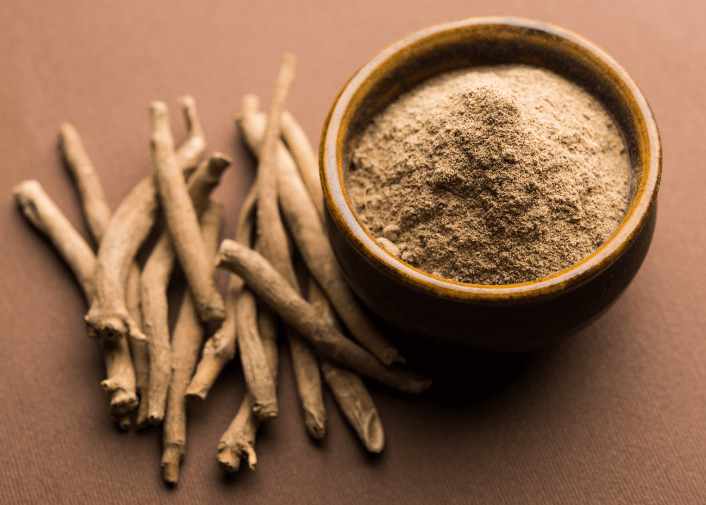- +033 2572 7171
- info@dhanvantary.com

4.5 Rating | 4500 Review

4.5 Rating | 4500 Review
Ashwagandha, commonly referred to as Indian Ginseng, Poison Gooseberry, and Winter Cherry, is a significant herb with a rich history. For over 3,000 years, it has been utilized in the Ayurvedic medicinal system. The herb, scientifically known as Withania somnifera, belongs to the Solanaceae family, which is also recognized as the Nightshade family.

India stands as one of the primary producers of this remarkable herb, Ashwagandha. Additionally, it is cultivated extensively in Yemen, China, and Nepal.
This herb offers a wide array of benefits for the human body due to its numerous medicinal attributes. It is known to reduce cortisol and blood sugar levels, but its primary application lies in its role as an adaptogen, effectively managing stress. Additionally, regular consumption of this herb may enhance testosterone levels in males. Ashwagandha also supports cognitive function and possesses immune-boosting properties that help the body combat various tumors and inflammatory conditions. The high concentration of withanolides in the Ashwagandha plant is primarily responsible for its anti-inflammatory and tumor-fighting capabilities. Given these remarkable and beneficial properties, Ashwagandha is often referred to as the "King of Herbs." However, scientific research has yet to establish any definitive interactions with other natural supplements, and it remains uncertain whether regular consumption is advisable.
In the Ayurvedic medicine system, both the leaves and roots of Ashwagandha are typically utilized in powdered form.
These days it is often seen that people are complaining about not gaining weight even after eating a lot. There can be many reasons behind this problem. Few of them are as follows:
Individuals may sometimes experience a lack of appetite due to various issues, which can lead to difficulties in gaining weight. In such instances, many resort to the use of steroids and weight gain medications. However, these substances often result in the accumulation of excess fat and can disrupt the body's normal functions, leading to a range of harmful side effects. In these cases, Ayurvedic treatments can serve as a more effective and sustainable alternative for weight gain. Within Ayurveda, Ashwagandha is recognized as a significant herb for promoting weight gain. Additionally, it is also utilized for weight loss purposes. Those who are underweight can benefit from Ashwagandha to enhance their weight and alleviate weakness. Furthermore, individuals engaged in bodybuilding have begun to incorporate Ashwagandha into their routines, as steroid medications can have long-lasting detrimental effects on the body. Consequently, there is a growing trend towards Ayurvedic (natural) supplements, which offer greater benefits and fewer side effects.
Ashwagandha is known to enhance stamina and support muscle development. It also plays a crucial role in balancing essential hormones within the body. Acting as an adaptogen, it helps to lower cortisol levels, commonly known as the stress hormone. Additionally, Ashwagandha promotes the production of androgens and testosterone. This remarkable herb also aids in the optimal functioning of the thyroid gland, ensuring that the body's metabolism operates smoothly. For those considering Ashwagandha for weight gain, it is advisable to consume it with milk. Such individuals should also increase their food intake and drink more juices, while engaging in regular exercise. By doing so, Ashwagandha can effectively assist in weight gain, as it not only stimulates appetite but also supports overall health. This herb not only enhances appetite but also maintains hormonal balance. Additionally, it supports proper digestion and optimizes metabolism, which enables the body to convert food into energy efficiently. A reduction in stress levels also alleviates anxiety, subsequently easing insomnia symptoms. Collectively, these factors contribute to weight gain.
It is recommended that an individual take one spoon of Ashwagandha powder twice daily, once in the morning and once in the evening, mixed with a glass of milk. This practice helps to calm the body's vata dosha and regulate sleep-wake cycles. Furthermore, individuals should increase their daily caloric intake and engage in regular exercise. These combined efforts can facilitate a weight gain of approximately 1 to 2 kg each month. The effectiveness of weight gain with Ashwagandha largely depends on individual consumption habits, lifestyle choices, and caloric intake.
